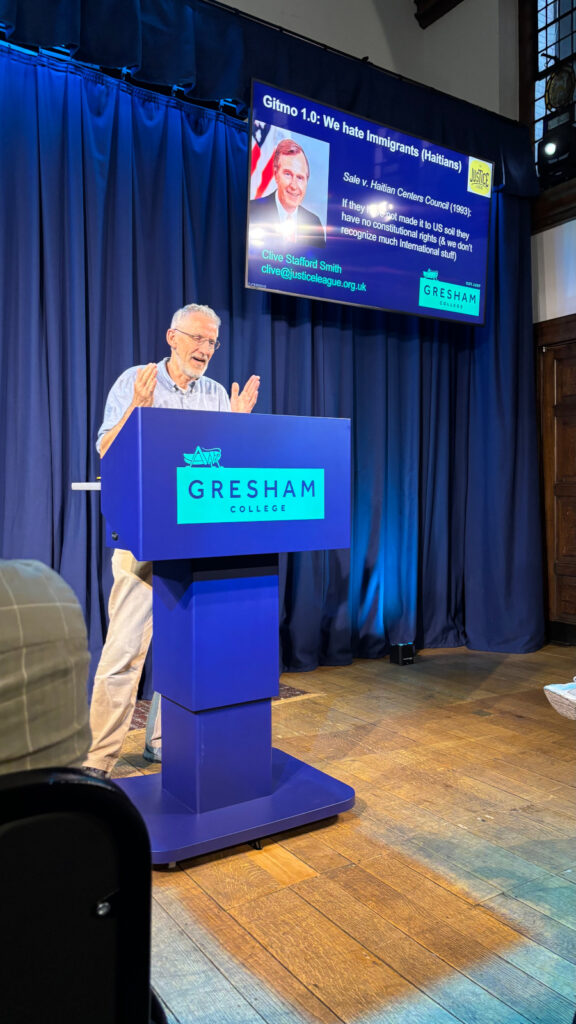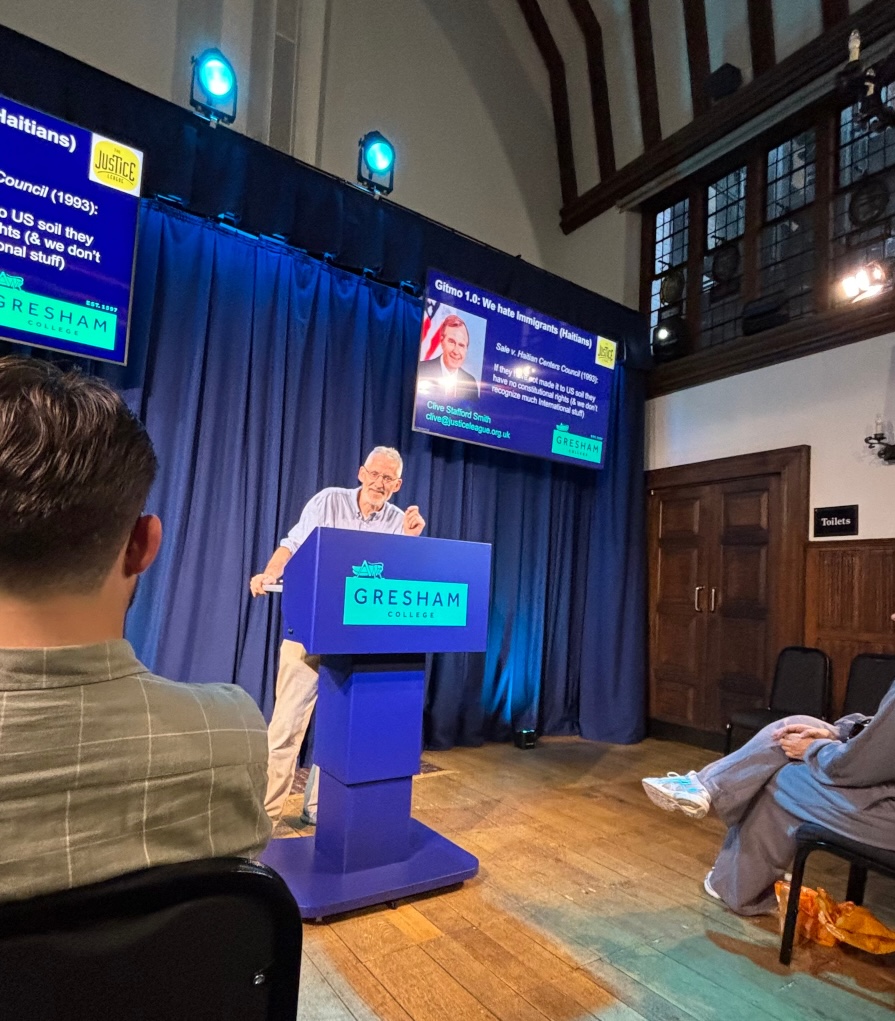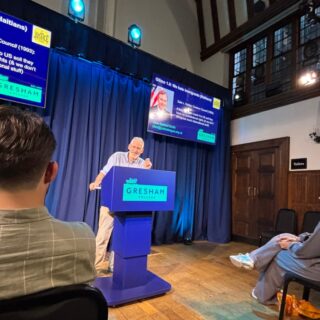If you are just beginning your studies at university you might not be aware of the brilliant Gresham College lectures. Gresham hosts regular talks on all manner of subjects from some amazing speakers and it is all available for the public free of charge. You can view from their archives under the Law category, but don’t rule out all the other fascinating material, from the worlds of history, maths, medicine, science, religion, music, literature, business and many more. A tiny pick from the next few weeks includes: Music of Animals, The Economics of Work and Technology, The Shape of Plants: Why Plants Love Mathematics and Mathematicians Love Plants and Whither War; Whither the Law of War. For events still to come you can look on the What’s On part of their website, but we also add the Law ones to the Lawbore Events Calendar. Events can be attended in person (near Chancery Lane in London) or online.
The inspiring Professor Clive Stafford Smith has been Gresham Professor of Law since 2024. Last year he delivered 6 fascinating talks for those fascinated by the constitutional aspects of law (watch these now) but this year his series of lectures focuses elsewhere, with the title of ‘Responding to Illiberal Populism in the US and the UK‘. As part of his ‘Beyond the classroom’ initiative, Professor Dimitrios Giannoulopoulos was able to take along a number of City Law School students to attend the first in this series in person last week, here’s a report on the event from Thomas C. Hills, LLB3 student.

On the evening of the 18th of September 2025, I had the privilege of attending Professor Clive Stafford Smith’s lecture at Gresham College, alongside Professor Dimitrios Giannoulopoulos of the City Law School. The focus of this lecture was Professor Stafford Smith’s interactions with prisoners in Guantánamo Bay and how he achieved their release. This article aims to provide a brief digest of the lecture, which was the first of six in a series hosted by Gresham College.
To understand the purpose and nature of Guantánamo Bay (henceforth Gitmo), one must first understand what it is. Gitmo is a military base located in eastern Cuba, roughly four times the size of Manhattan. It was initially created to prevent prisoners from acquiring rights that would protect them from certain forms of treatment, such as ‘enhanced interrogation techniques’, more colloquially known as torture. Professor Stafford Smith revealed during his lecture that the original purpose of Gitmo was rooted in racism and discrimination, particularly against the Haitian population.
Professor Stafford Smith went on to discuss the supposed ‘benefits’ to the US of maintaining Gitmo, which is, for all intents and purposes, a governmental black site. The key benefit lies in its location: it is positioned in such a way that the US Constitution does not extend the same rights to those detained there as it does on the mainland. On this basis, he explained, if someone has never set foot on American soil, they can be sent to Gitmo, where they will have no rights or protections, since the US has signed no binding human rights agreements in this regard. Consequently, those held at Gitmo are entirely at the mercy of the military personnel who run the base. They are typically not merciful. Prisoners have been subjected to various forms of torture, including strappado, waterboarding, and genital mutilation. The most horrifying part—aside from the fact that torture is happening in the 21st century—is that, according to Professor Stafford Smith, over 98% of those detained have later been proven innocent.
Throughout the lecture, Professor Stafford Smith shared lessons about how he has managed to accomplish so much in a legal realm full of obstacles and red tape. One lesson was to always consider what the opposition may do. To my understanding, he was teaching that we must anticipate how others will respond to our actions, whether in a court of law or the court of public opinion. He encouraged us to view our actions as moves in a game of chess: how will your opponent respond? He also reminded us that there will always be people spreading hatred, which is why the price of liberty is eternal vigilance. I understood this to mean that we, as a society, must remain informed and active in order to fight against unnecessary hatred and to ensure we live in a fair and welcoming society for all law-abiding citizens.

To conclude, Professor Stafford Smith ended the lecture with a single piece of advice for those who wish to pursue justice: find the fundamental value in what you want to do with your life, and understand the societal benefit you bring. He was clear that, regardless of your skill set—whether you are a lawyer, teacher, vet, or kitchen porter—you can make a difference to people facing hardship. You can make their lives better.
Given the length of this article, I could never hope to do full justice to Professor Stafford Smith’s lecture, I hope it prompts some of you to go and watch the full talk to gain a comprehensive account of what was discussed. A big thank you goes to Professor Dimitrios Giannoulopoulos for providing this opportunity. He is committed to widening participation and engagement among all law students at City, University of London. If you found this digest interesting and would like to attend future events like this one, please do send him an email.

Thomas C. Hills is an LLB 3 student with aspirations of joining the commercial chancery Bar as he has a particular interest in international banking litigation.
He is the City St. George’s Law Society Co-president for the 2025/26 academic year, and last year was also the Chairman of the Students’ Union’s academic development priority group for the 2024/25 academic year.
Outside of university he likes to take part in a multitude of sports, read fiction novels, and gardening.
Don’t forget to register for Prof Stafford Smith’s next Gresham lecture: Donald Trump and the Death Penalty (4th December).

